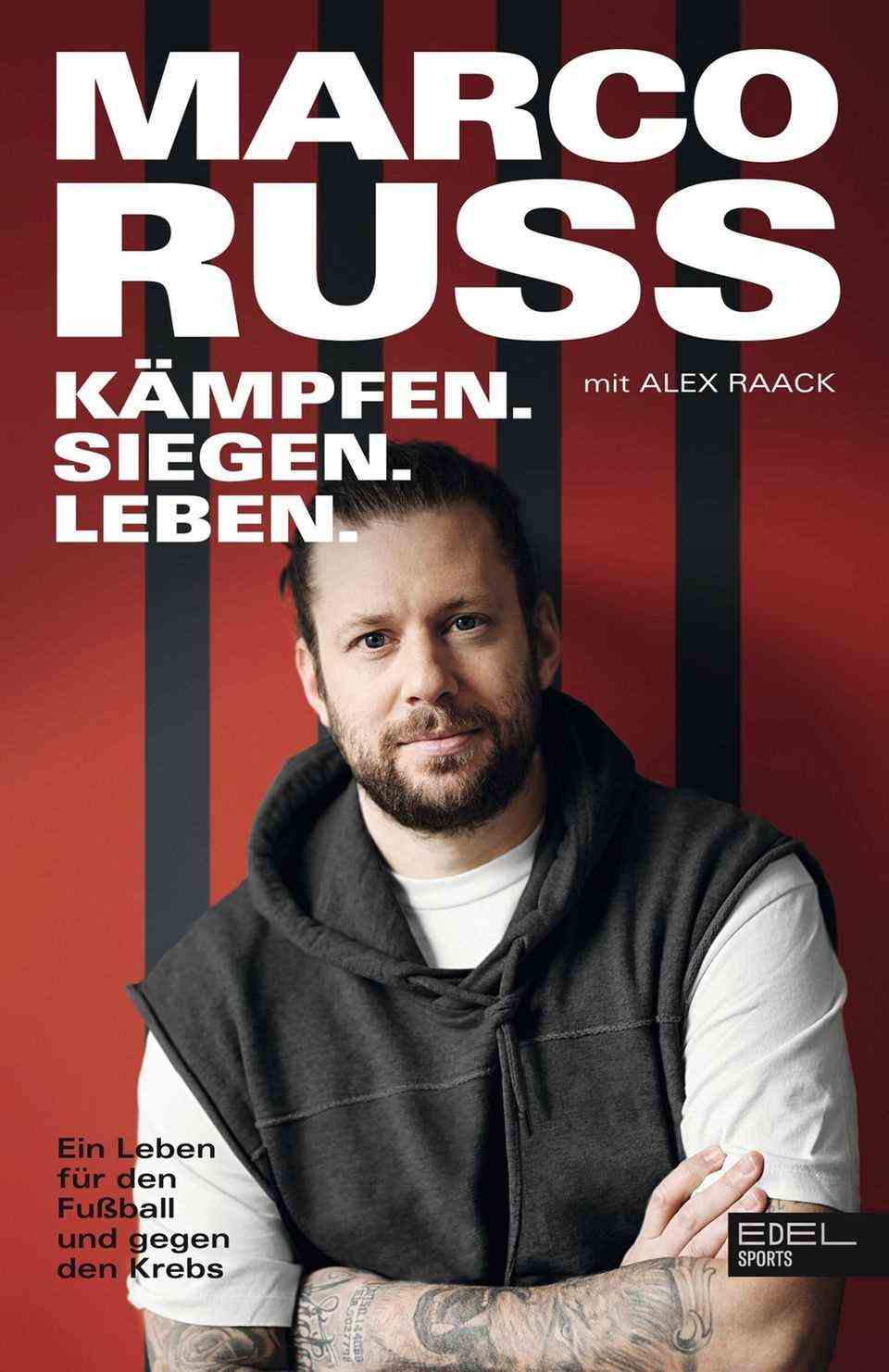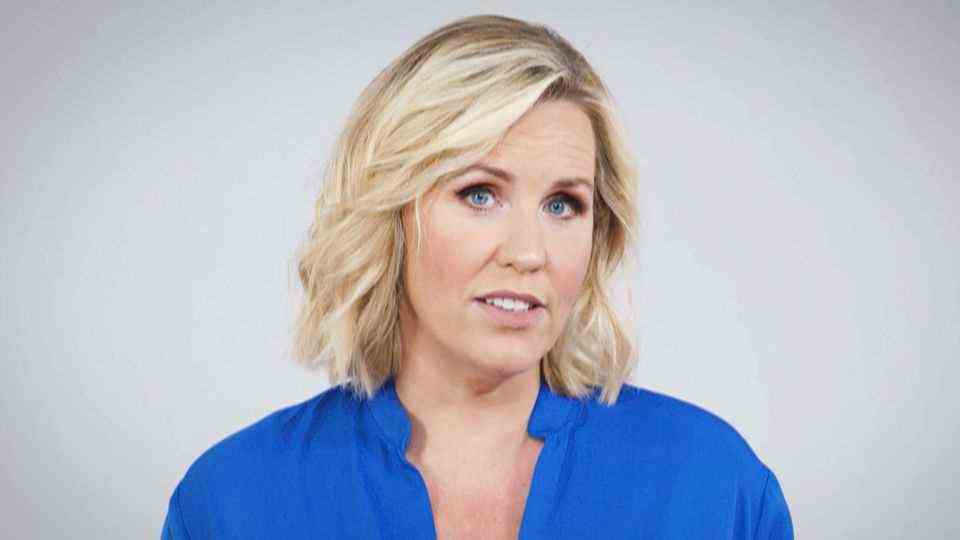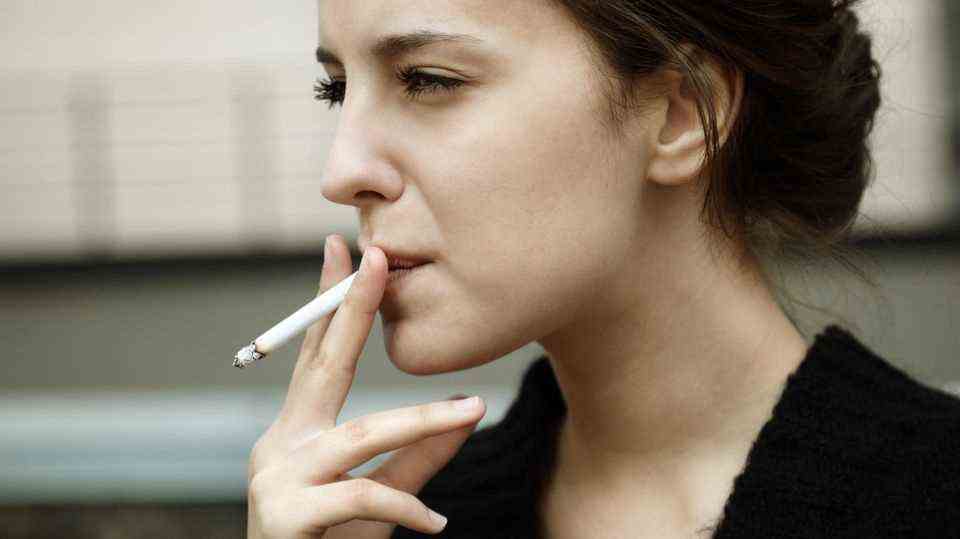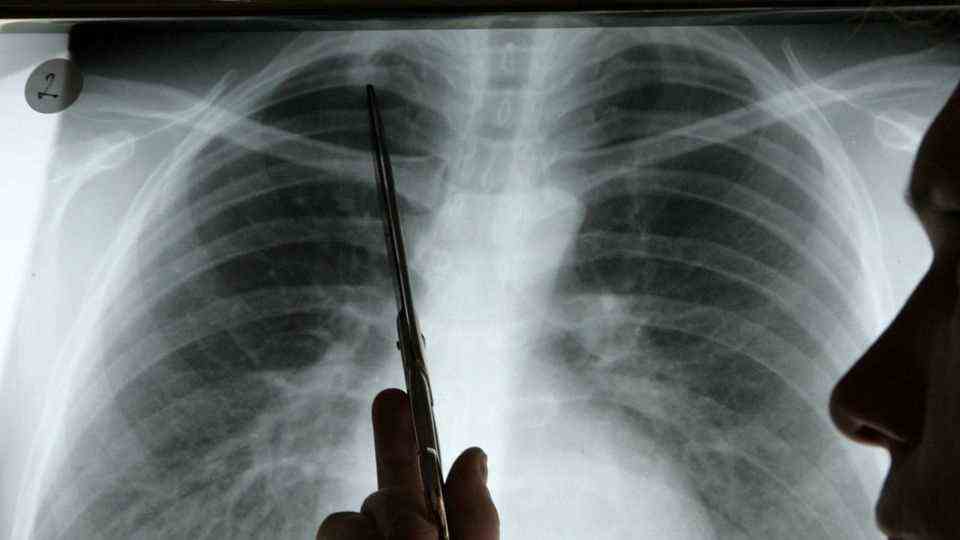Five years ago, Marco Russ, then a Bundesliga player at Eintracht Frankfurt, was diagnosed with cancer. Russ is now healthy again – and speaks in the star-Interview about his illness.
In May 2015, Marco Russ received the shock diagnosis: testicular cancer. At that time Russ played in the Bundesliga at Eintracht Frankfurt, was in the middle of life. His illness caused great sympathy in football and beyond. Russ survived the illness and was even able to play in the Bundesliga again.
Today it is important to him to sensitize people – especially men – to take cancer prevention seriously. In his autobiography “Fighting. Winning. Life – A Life for Football and Against Cancer” Russ tells openly and honestly about his football career and the time of his illness. Of the star talked to him about it.
Marco Russ: “Cancer can affect anyone”
stern: Marco Russ, you were diagnosed with testicular cancer more than five years ago. Do you still feel the aftermath today?
Marco Russ: Not really. For a few weeks or months, I sometimes had recurring beeps in my ear caused by chemotherapy. But actually I’m back to how I was before the illness.
You were lucky: Actually, the tumor was discovered more or less by chance, during a doping control …
Definitive. Usually you will be drawn randomly for doping controls. It was then that I noticed that a value was too high and then called me back to check it to see whether the value had changed. At some point the Nada is (National Anti-Doping Agency, editor’s note) came up to us because she suspected that I was dope. But it was about a substance that can also be produced by the body itself.
That only led to the examination for cancer.
We immediately drove to the urologist with the team doctor because it was clear: If something should be present, it would have to do with testicular cancer. The investigation took about a minute. The doctor put on the ultrasound head and immediately said: Yes, you have cancer.

Marco Russ
“Fight. Win. Life – a life for football and against cancer”
240 pages
19.95 euros
ISBN 978-3841907790
© Edel Books
Can you still remember what went through your head at that moment?
There was just emptiness in the head. It was like a slap in the face. One does not assume such a disease in a person who lives healthy and does high-performance sport. But I pushed my thoughts aside because our relegation game against Nuremberg was imminent. And the doctors told me that nothing needs to be done within the next few hours.
You were 30 at the time, a competitive athlete – could the doctors tell you something about the background?
One always thinks that competitive athletes are left out with such diseases. But it can happen to anyone. If I had a bad lifestyle … But there is really nothing I have done that could have made me sick.
Did you deal with death during this time?
No not at all. The doctors immediately ruled that out because this type of cancer is great to treat. The chances are great that you will be completely healthy again. The most important thing is to always be positive. Of course, there are moments that pull you down, but if you stay positive and clear in your head, it can go a long way.
Immediately after your diagnosis, the incredibly important game in the relegation against 1. FC Nürnberg was on, your club Eintracht Frankfurt threatened to be relegated. You played 90 minutes in the first leg. How do you manage to mentally adapt to such a situation?
I was mentally fully involved in the game. It was about the club, relegation, that would not only have hit us players hard, but also many employees. I could put the diagnosis aside at that moment. Other teammates or the coach may have thought more about it. I knew I was sick and what was coming, but for that moment I could just turn it off.
How have the reactions been from players and fans of other clubs – was the motto “Separate in colors, united in the matter”?
That’s exactly how you can say it. There were many wishes for wellbeing from all over the Bundesliga. Of course, sometimes you get whistled in the stadiums, that’s part of football. But when something like this happens, you notice that the focus is not on the club you play for, but on the person. This shows that despite the great rivalry in sport, health is even more important.
Your book says that until then the greatest challenge in life was playing against the best strikers in the Bundesliga. How has the cancer challenge changed the way you look at football?
The look had already changed with the birth of my children. Before that, football was number one. At a young age you subordinate everything to the goal of becoming a professional. The illness has taught me a lot more to listen to my body and to notice when it is not doing well. Then I take a day off. Otherwise, as a footballer, you often simply ignore many ailments and try to bite your teeth – especially as a young player.
They then had an operation and had to undergo chemotherapy. How did you experience that time?
The operation lasted 15 or 20 minutes, luckily the cancer hadn’t spread. During chemotherapy I was given a mixture of three different poisons via infusions. I tolerated the first chemo relatively well, the second really knocked my socks off. It felt like the whole week that the chemo was just lying there, didn’t eat anything, didn’t drink anything. But afterwards the values were such that you could say: I am cured.
Nine months after the diagnosis you made your comeback in professional football, on February 28, 2017 in the DFB Cup against Arminia Bielefeld. How do you feel about this evening?
It was of course very emotional when the fans noticed that I was coming on. After such a long period of suffering, it was a real highlight. I shouldn’t be in the squad yet, but then Makoto Hasebe got sick and the coach needed a defender. We led 1-0, I got in in stoppage time – and then it was all about saving the victory over time. A couple of headers, a couple of duels, I could do that again.
Is this comeback more important in your career than winning the DFB Cup a year later?
No, unfortunately that doesn’t come close to the trophy. (laughs.) That’s why you play soccer to win titles. And I played at a club where it wasn’t that common. That’s why nothing comes of it.
How difficult is it to get back to Bundesliga level after such an illness? Can you compare that to other injuries?
I tore my Achilles tendon a few years later. You can train again shortly after the injury: not the injured leg, but for example the upper body. During the chemo and the two or three months after that, my body was so in the basement that nothing worked. No strength, completely drained. And then you start completely from scratch: walk a little faster, then jog very slowly. It was a tough time for my head too.

Did you still always believe that you could make it back to professional football as a player?
I never said that at a certain point I wanted to play football again, I always set myself small goals. The treatment was in the summer, I started training again at the end of September, and my big goal was to fly the team to the training camp in January. That worked out. So it went on with small goals towards complete team training.
From the first moment you were very open about your cancer. Why is this so important to you?
Because that’s not a taboo subject for me. It is quite normal for women to go to the gynecologist from the first period and have them checked regularly. It feels like men don’t do this until they are 50. But the sick are getting younger and younger, whether women or men. That must be a warning to us not to have the prostate examined until the age of 50, because there are also types of cancer that attack young people. We have to make men much more aware of the need to take precautionary measures – that doesn’t hurt. The sooner the better.
You have played more than 300 Bundesliga games and won the DFB Cup once – and yet you only know most of them as the footballer with cancer. Does that bother you sometimes?
No, that’s just as much a part of me as playing football. And if people see it that way, it’s not an insult. I am very relaxed and like to talk about it.
With the exception of a year and a half at VfL Wolfsburg, you spent your entire football career at Eintracht Frankfurt and you still work there today as a game analyst. What makes the club so special for you?
I have been a fan since I was a little boy and as a ball boy I took part in Bundesliga games. Frankfurt is multicultural, the club is multicultural, the fans are multicultural – I’m Frankfurt through and through. And when you spend your whole life there, the club just grows on your heart.
Wouldn’t you have liked to get to know a few other clubs in your career?
Well, I would have loved to have done Barcelona or Real Madrid ….
You probably wouldn’t have taken it …
Yeah, I was just too bad for that. (laughs.) I felt comfortable here, I have my friends here. In 2011, when I moved to Wolfsburg, I felt that I needed a new challenge. But even then I quickly noticed that it is best to be at home.



